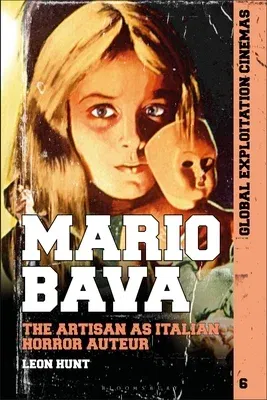Leon Hunt
(Author)Mario Bava: The Artisan as Italian Horror AuteurPaperback, 21 September 2023

Temporarily out of stock
Free Delivery
Cash on Delivery
15 Days
Free Returns
Secure Checkout

Part of Series
Global Exploitation Cinemas
Print Length
240 pages
Language
English
Publisher
Bloomsbury Academic
Date Published
21 Sep 2023
ISBN-10
1501390856
ISBN-13
9781501390852
Description
Product Details
Author:
Book Format:
Paperback
Country of Origin:
US
Date Published:
21 September 2023
Dimensions:
22.86 x
15.24 x
2.54 cm
ISBN-10:
1501390856
ISBN-13:
9781501390852
Language:
English
Location:
New York
Pages:
240
Publisher:
Series:
Weight:
453.59 gm